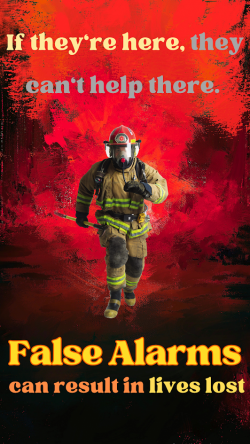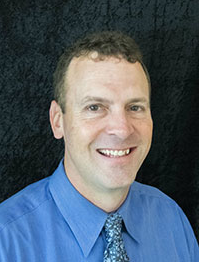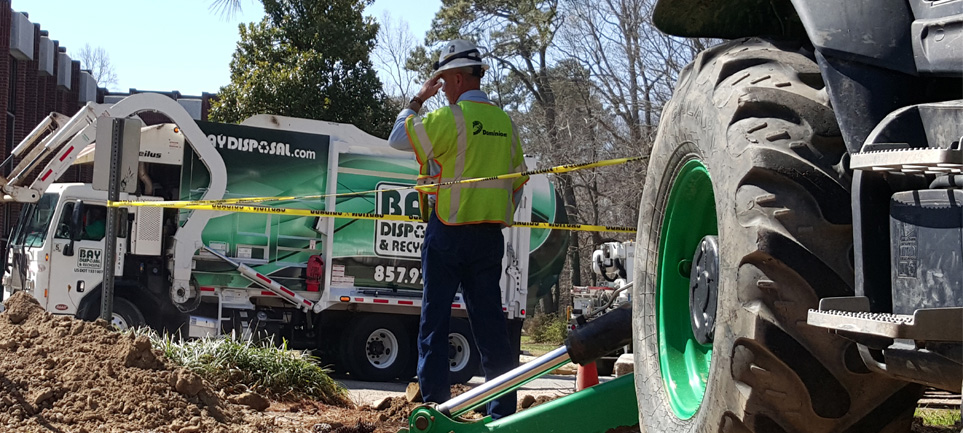Featured Image: Residence Life dispensed flyers across residence halls and buildings to respond to false fire alarm incidents. Residence Life | Courtesy
After fire alarm incidents affect multiple halls across campus, Vice President Jason Seward offers explanation and advice.
Non-emergent fire alarm incidents have become a frequent occurrence in residence halls since the start of the semester. This has prompted questioning from students about the reasons behind these persistent and unwelcome alarms, especially when these situations have warranted the response of firefighters on campus.
One such situation occurred in East Hall of Allen Village. According to Associate Vice President for Campus Life and Operational Management Jason Seward, someone activated the fire alarm without the presence of an active fire, risk of fire or any other related danger.
The blare of disagreeable alarms occurred very early in the morning and awoke unsuspecting students, causing unrest and disturbance on a weekday. Seward provided insight on the incident.
“Imagine yourself quietly and comfortably sleeping in your bed at three o’clock in the morning and being woken up loudly to an alarm, and you have no clue what’s going on,” Seward said. “And then you are made to go stand outside until you can figure out what’s going on and hoping that the fire or whatever you’re evacuating for isn’t directly impacting you, trapping you in your room and unable to escape.”
Fire alarm precaution messaging, mainly in the form of flyers around campus, has been distributed due to a high volume of similar incidents.
“Campus safety is everyone’s responsibility. It’s your responsibility. It’s your peers’ responsibility, my responsibility, security, Res Life and our community,” Seward said.
Triggering a fire alarm can cause unnecessary panic and lead to individuals losing sleep, becoming distressed or getting hurt.
Senior Noa Fresco Polo, a resident of East Hall, was asleep when the fire alarm went off.
“It was 3 a.m., and I heard a horrible noise that was an alarm. I woke up, and I saw my hallmates, and they told me, ‘Noa you have to come, we have to go outside because there’s a fire alarm, maybe it’s a fire.’ And then I didn’t think, and I only took my key. I saw everyone running,” Fresco Polo said.
Fresco Polo said that the residents all waited outside as firefighters came.
“Everyone started saying that someone [pulled the alarm], and they didn’t know who it was,” Fresco Polo said.
This inappropriate usage of the fire alarm affects students, campus security and Residence Life staff and the firefighters who responded. Creating false emergencies pulls first responders and staff away from true issues that arise.
Seward emphasized that incidents of wrongly triggered alarms may have repercussions.
“For every action, good or bad, there’s a consequence,” Seward said. “It is not meant to be pure punishment, but meant to be part of the educational process of which myself and my colleagues have committed ourselves to—not just education in the classroom, but becoming a young adult, living independently, being part of a greater community.”
Seward referenced the Student Conduct expectations that students may be in violation of if there is a falsely triggered fire alarm.
“There are sanctions that are associated with violations,” Seward said. “Levels of probation, community service, in some more severe cases, loss of university housing, and then there’s the most severe cases, which could result in suspension or expulsion, but those are very few and far between.”
Despite the ultimate lack of danger, students voiced gratitude toward the reliability of the first responders.
“I have to say that the firefighters were very fast, so if something was happening, they were there,” Fresco Polo said. “But they wasted their time here.”
Not all the alarms can be attributed to the actions of residents. Around campus, regular fire alarm drills are conducted with intentions of avoiding panic around the prospect of real fires. These tests, however, have caused confusion among students.
Senior Erika Eichelberger spoke on the confusion caused by these drills in the Honors Village.
Residents do not currently receive information distinguishing between drills and emergencies.
“My one friend, in fact, was in the shower during this time, and he ran out in his shorts and nothing else, thinking it was an actual emergency. Little did he know it was just a four o’clock in the afternoon fire drill,” Eichelberger said.
Eichelberger also included her opinion on what should be done to mitigate this confusion.
“I believe that we should get notice from fire drills, even if it’s giving the RAs more advanced notice than they did receive, and tell them to forecast that there will be a drill happening,” Eichelberger said.
Seward said students can take action to decrease the irresponsible triggering of alarms. This includes attentiveness while cooking to decrease the amount of false alarms and the danger of actual fires.
“What we have seen is an uptick in students putting something on the stove, walking away from it, the heat is too high, just not paying close enough attention,” Seward said. “We’ve seen some of the cases have been stove tops that haven’t been cleaned properly, and because of it, the oil and grease buildup on the top smokes up and causes an issue there.”
Seward said that campus leaders have been making proactive efforts to mitigate these situations.
“We’ve worked with dining services to offer opportunities to learn through there. Our Residence Life team has got some programs… like cooking classes. Our Student Government Association is getting involved with it as well,” Seward said.
Seward reinforced his concern for student safety.
“Our community is committed to safety… And unfortunately, part of the growing pains is sometimes people make immature decisions, and it impacts the greater community,” Seward said.

Fire trucks arrive in Honors Village parking lot in response to a drill. Lily Reslink | Marlin Chronicle
By Isaac Fick


